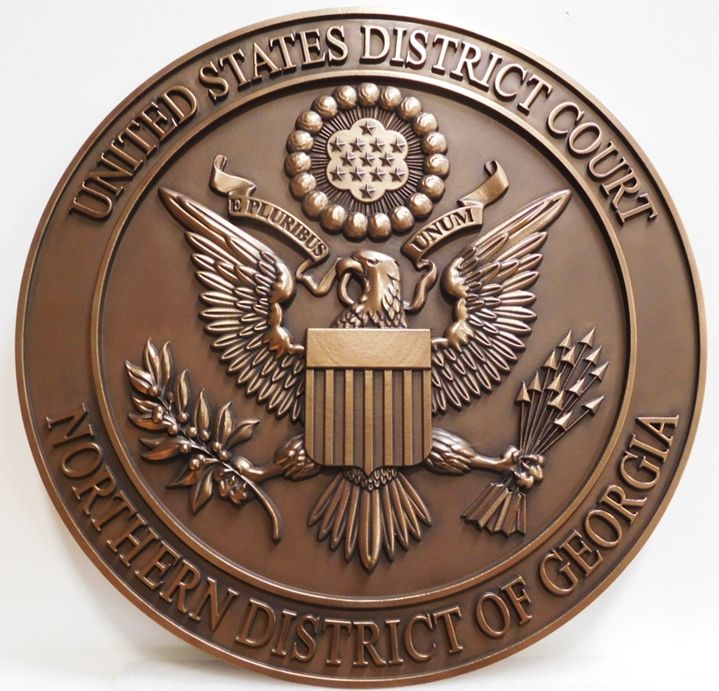The IRS fights its battle against abusive syndicated conservation easements in actual courts side by side with the Department of Justice (DOJ). IRS and DOJ also fight the battle in the metaphorical court of public opinion with press releases and comments by officials. Appraiser Claud Clark III is arguing that IRS has violated Code Section 6103 – Confidentiality and disclosure of returns and return information – by disclosing his “return information” in press releases and comments.
Counterclaim
Clark is litigating his disclosure complaint as a counterclaim in the massive injunction litigation that DOJ filed against numerous defendants including him in December 2018. His first counterclaim was dismissed, but the second one survived a motion to dismiss. DOJ has asked that the Eleventh Circuit rule on exactly what constitutes a violation of Section 6103 to avoid the need for extensive discovery. Clark would rather that his counterclaim proceed.
This is all rather lawyerly. The issue is whether information that has become part of the public record, because it is the subject of litigation can again be disclosed in a press release. Various circuit courts have ruled inconsistently on the issue. What I find most intriguing is the items that Clark mentions as inappropriate disclosures in his amended counterclaim.
The counterclaim includes in its definition of “return information” what Mr. Clark provides in his own 1040s, what he provides on Form 8918 – Material Advisor Disclosure Statement – and what his clients tell the IRS about Mr. Clark when they file Form 8283 – Non Cash Charitable Contributions. There is also what IRS learned about Mr. Clark from auditing his clients and investigating him. Then there is the fact that Clark is the only appraiser in the injunction litigation, so if they mention appraisals in conjunction with discussing the litigation, they are in effect talking about him.
For purposes of section 6103 of the Code, a disclosure that does not name Mr. Clark still identifies him if it contains information that, combined with other information available at the time of the disclosure or that becomes available subsequently, permits persons generally knowledgeable with the relevant transactions and industry to identify Mr. Clark.
Snide Remark?
The first statement is kind of amusing.
On or about January 10, 2014, an IRS Official disclosed the following to at least one other IRS Official: a print-out of Mr. Clark’s website, which prominently features a picture of him, with the remarks, “Your hero! Of Kiva Dunes,” handwritten on the printout in sharpie.
There was also a smiley face emoticon drawn.
The funny thing is Mr. Clark arguably is the Hero of Kiva Dunes, the taxpayer win that inspired the flood of abusive syndicated easements. Judge Wells mentions him 66 times in the opinion. I am puzzled as to how one IRS employee correlating a website to an opinion for the edification or amusement of a fellow worker violates 6103, but it is what it is. The complaint indicates that it was not based on public record information.
Public Trumpeting
The second purported disclosure comes from the DOJ press release on December 29, 2018 when DOJ announced filing the injunction litigation. The compliant calls this “Public trumpeting with respect to Mr. Clark“. There are several excerpts from the release including “… defendants made or furnished gross valuation overstatements about the valuation of conservation easements and the corresponding tax deductions“. Remember Clark is the only appraiser among the group.
Statement 2 directly discloses the identity of Mr. Clark, a person potentially subject to internal revenue taxes or other liabilities under the Code (e.g., the income tax; appraiser penalties under section 6695A of the Code; and other remedies sought by the Counterclaim-Defendant in This Litigation), by stating his name.
Statement 2 indirectly discloses Mr. Clark’s profession as an appraiser, the nature and source of his income from his appraisal business, his potential liabilities under the Code for his appraisal work, and that he was, is being, or will be under IRS investigation by disclosing information relating to the IRS’s investigation of Mr. Clark, allegations against Mr. Clark in This Litigation, and allegations regarding Mr. Clark’s appraisals.
Willfully False Valuations
Statement 3 in the complaint comes from Richard E. Zuckerman, DOJ Tax Division’s Principal Deputy Assistant Attorney General in a December 19, 2018 press release.
“The Department of Justice is working with our partners in the Internal Revenue Service to shut down fraudulent conservation easement shelters, which in this case were based on willfully false valuations.”
Remember that in the other release Mr. Clark is the only appraiser named.
Statement 4 comes from an employee under Terry Lemons, Chief, Communications and Liaison of the IRS on March 19, 2019.
The promoters obtain an inflated appraisal of the conservation easement based on unreasonable factual assumptions and conclusions about the development potential of the real property
Statement 6 comes from Commissioner Charles Rettig himself on November 12, 2019.
We will not stop in our pursuit of everyone involved in the creation, marketing, promotion and wrongful acquisition of artificial, highly inflated deductions based on these aggressive transactions
There is a chance that Mr. Rettig does not know who Claud Clark is, but by the logic of the countercomplaint he is talking about his tax information there.
Statement 7 is attributed to unnamed IRS people whose remarks are summarized in a Wall Street Journal article by Richard Rubin.
The IRS . . . said its combined civil and criminal efforts include billions of dollars in deductions and thousands of investors in the deals.”; and, “In some deals, high-income people can invest $1 and claim $4 or more in deductions within months, enough to turn a quick profit on the tax break. Those deals have been particularly popular in the southeastern U.S. . . . Also last year, the IRS filed suit against easement promoters in Georgia
One can imagine the countless number of loyal Richard Rubin readers who will immediately have Claud Clark’s name pop into their head when they read it. I’m sure my readers will recall my crediting Richard Rubin with breaking the story on the injunction and ruining Christmas for Ecovest people.
Statement 8 was a statement that Commissioner Rettig made to the AICPA National Tax Conference on November 4, 2019.
“We don’t appreciate the activities that have gone on with respect to the syndicated conservation easements; there are some artificial appraisals there, some fatal flaws.”
All those CPAs must have known who he was talking about there.
Douglas O’Donnel, Commissioner of the Large Business and International Division also made remarks at the same conference. Sunita Lough, Deputy Commissioner for Services and Enforcement was there too piling on with
‘I’m very comfortable we will have wins in conservation easement cases because some of the appraisals are really bad and can’t stand on their own.
To The Senate
Then there is Statement 11 which went to Senator Grassley. It discusses what is going with appraisers in the deals and mentions the injunction fight,
Statement 11 indirectly discloses Mr. Clark’s identity, his potential liabilities under the Code, and that he was, is being, or will be under IRS investigation by disclosing information about appraisers of syndicated conservation easements, appraiser penalties, and This Litigation. Together with the DOJ Press Release, which identifies by name Mr. Clark and no other licensed appraiser, IRS press releases and other available information and news articles, the disclosure’s overt reference to This Litigation, to which many press reports and the DOJ Press Release link Mr. Clark, the disclosure’s reliance on a small sample size (13 appraisers in 2015, 23 appraisers in 2016, and 29 appraisers in 2017), and the relatively small number of publicly known conservation easement appraisers, this information permits members of appropriate communities, including the tax profession, the tax press, the conservation community, and the appraisal industry, to identify Mr. Clark’s return information, e.g., his identity, his potential liabilities, and the IRS’s investigation of him
Just Shut Up
I can’t resist a little historical diversion here. Ernest Joseph King was the Commander in Chief of the United States Fleet and Chief of Naval Operations during World War II. When asked what the Navy’s public relations policy should be, he said:
Don’t tell them anything. When it’s over, tell them who won.
Besides the damages, adoption of that sort of approach is exactly what Clark is seeking.
Cessation of public statements relating to Counterclaim-Plaintiff and his appraisals until the completion of This Litigation, as authorized by 26 U.S.C.§ 7402
The issue is whether information that has become part of the public record, because it is the subject of litigation can again be disclosed in a press release. Various circuit courts have ruled inconsistently on the issue
I have to say that when it comes to something that is not resolved by the courts, IRS and DOJ should say what they have to say in court and leave it to the tax press to report. Often a lot of coverage ends up being parroting DOJ press releases which can be unfair.
Clark’s attorney, Robert Khayat was unable to comment but indicated that the court filings indicate his client’s position. I guess he is being consistent with what he is asking the IRS to do.
Comments
I have heard from two critics of the syndicated conservation industry neither of whom wants to go on the record. One wrote me:
This is just another illustration of how the throw-sand-in-the-gears approach of the very well funded guardians of abusive syndicated conservation easement transactions works so well. Complaint, motion, response, complaint, etc. This is not a knock on DOJ or IRS but it does show that enforcement to stop these SCEs will only go so far because it will take so long when the targets apparently have an unlimited defense budget. That is why we need legislation to shut down these abuses that are costing the taxpayers billions of dollars and achieving virtually no significant conservation purposes
The other who goes by Factual Freddie wrote me:
In my opinion, its all about delay, delay delay the real case. Case filed December 2018, discovery still extended to November 2021. In the meantime deals have happened and continued likely for 2021 unless the new legislative provision is enacted.
Other Coverage
Kirsten Parillo of Tax Notes has a discussion of the legal issue involved in the government’s request for an interlocutory appeal – Appraiser Opposes Interlocutory Appeal in DOJ Easement Suit.
——————————————————————————————————————————————————————–
Originally published on Forbes.com.
For great value continuing professional education. I recommend the Boston Tax Institute

You can register on-line or reach them by phone (561) 268 – 2269 or email vc@bostontaxinstitute.com. Mention Your Tax Matters Partner when you contact them.































































































